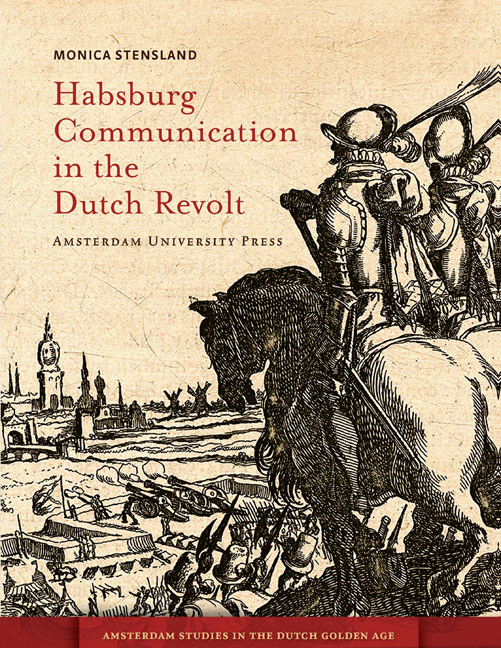Book contents
- Frontmatter
- Dedication
- Contents
- Acknowledgements
- List of Abbreviations
- Notes on References and Translations
- Introduction
- Rooting out Heresy and Rebellion, 1567-1572
- From Rebellion to War, 1572-1576
- The Breakdown of Royal Authority, 1576-1578
- Communicating Reconciliation, 1578-1585
- Losing the Peace, 1585-1595
- A New Beginning, 1596-1609
- Conclusion
- Notes
- Bibliography
- Illustration Credits
- Index
From Rebellion to War, 1572-1576
Published online by Cambridge University Press: 27 January 2021
- Frontmatter
- Dedication
- Contents
- Acknowledgements
- List of Abbreviations
- Notes on References and Translations
- Introduction
- Rooting out Heresy and Rebellion, 1567-1572
- From Rebellion to War, 1572-1576
- The Breakdown of Royal Authority, 1576-1578
- Communicating Reconciliation, 1578-1585
- Losing the Peace, 1585-1595
- A New Beginning, 1596-1609
- Conclusion
- Notes
- Bibliography
- Illustration Credits
- Index
Summary
On 1 April 1572, the rebellion that Alva had been working to crush changed into a war. On this day the so-called Sea Beggars, rebel privateers operating under the nominal authority of William of Orange, seized the little port town of Brill in Southern Holland. After having been expelled from their refuge in English Channel ports a month previously, they needed to stock up on supplies, but rather than limiting themselves to some plunder they decided to take full control of the whole town. Brill was a small place and the Sea Beggars did not possess large forces, but their capture nevertheless triggered something of a chain reaction. Suddenly, neighbouring towns were forced to make a choice between getting a royal garrison or relying on the local militia for defence against the Sea Beggars. On the whole, town magistrates were keen to stay loyal, but admitting Spanish troops into the town was a very high price to have to pay. They had already had their authority severely undermined by their more or less forced acceptance of the Tenth Penny, and the unpleasant prospect of a garrison proved such a ‘deal-breaker’ that they were easily out-manoeuvred by local supporters of the Sea Beggars, especially when these included members of the militia. In several cases, locals appealed directly to the rebel pirates for assistance and even invited them to take control. Although most towns could probably have fought off the small Beggar forces had the will to do so been there, by the end of July the majority of towns in Holland and Zeeland, with the significant exceptions of Amsterdam and Middelburg, were in rebel hands.
Although the Sea Beggars’ hold on their newly won territory was far from assured, their position was strengthened by the rebel leadership's decision to kick off their intended second invasion attempt from the east and the south. On 24 May, Louis of Nassau, who had been working to secure French support for an invasion, captured Mons, and by the end of July Count van den Bergh, Orange's brother-in-law, managed to capture Gelderland and much of Overijssel, Drenthe and Friesland. Although the rebel gains north of the rivers were substantial, for the regime the threat of a French-backed invasion, which had been expected but whose magnitude remained unknown, was more frightening still.
- Type
- Chapter
- Information
- Habsburg Communication in the Dutch Revolt , pp. 55 - 70Publisher: Amsterdam University PressPrint publication year: 2012



